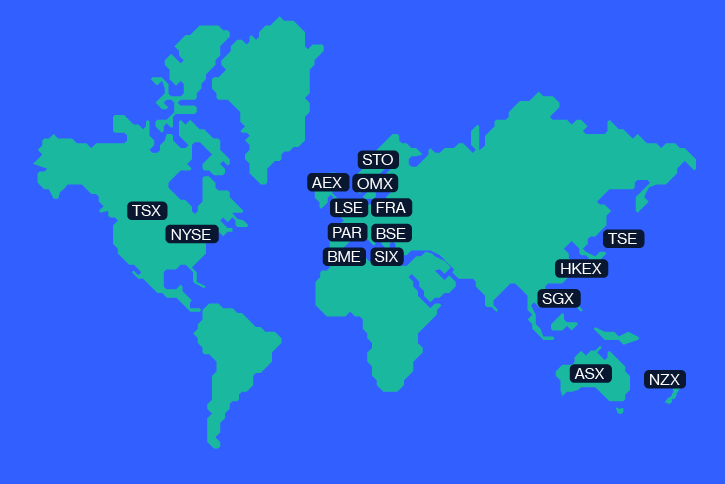What is international share trading?
International share trading simply means buying shares in companies based outside your home country. Unlike trading where you live, like the ASX in Australia, it allows you to invest globally. Did you know the Australian market is just 2% of the global market? That means there’s a whole lot more out there to discover.
When you go international, you’ll want to be prepared for new taxes and different costs. For example, buying US stocks might come with a 30% withholding tax – however, it could also be less, like 15%, due to Australia's tax agreements with other nations. Knowing about these taxes beforehand and talking to someone experienced in global trading could be helpful.
To start international trading, you will need to sign up for an account that offers it, like with CMC Markets. Remember, fees for international trades can vary from place to place, with possible extras when you consider the exchange of currencies. If you're a long-term investor, these costs may not seem like a big deal, but for more active traders, they can add up and affect your overall gains.
How do international shares work?
International shares work by allowing you to buy a piece of companies operating outside your home country. There are two types of markets you’ll be looking at when investing abroad: developed and emerging.
Developed markets are in countries with well-established economies. Think of places like the United States, the United Kingdom or Japan. Investing here can be more stable because these countries usually have strong and predictable economies.
Emerging markets, on the other hand, are in countries that are still growing and developing. Examples include Brazil, India and even China. These markets can be less predictable, and the country's economy might not be as stable as developed ones. While there's certainly potential for growth, be aware that it also comes with more risk.
When you invest in international shares, you're putting your money into the stocks of companies from those countries. If you're interested in technology, for example, you might be interested in investing in companies like Samsung from South Korea or Alibaba from China. Remember, though, that each country's stock market operates differently. Before taking the plunge, consider factors like their economic policies, political stability, cultural differences and exchange rates.
For many, investing in international shares is a way they can diversify their portfolios by spreading their risk across different economies. This way, if one country's market isn't doing very well, it might not affect their overall investment. Either way, knowing about the risks involved in different markets, especially in emerging economies, can help point you in the right direction for your long-term objectives.
Domestic vs international shares
Unlike your domestic market, where you might be more familiar, international shares will introduce you to various economies, industries, cultures and more. It might require you to research that specific market and understand its national regulations. After all, plenty of unique factors can – and often do – influence a country's economy.
While the basic concept of buying a piece of a company remains the same, the global market adds layers of complexity and opportunities. Here’s what you might want to think about.
Key skills to have
As you’ve already completed several of our educational modules, remember you’ve gained plenty of helpful investing skills. Setting a budget, doing plenty of research and clarifying your investment goals could be all you need.
The stakes are often higher in the global markets, so you’ll also need a keen awareness of the potential risks. But, so long as you stay proactive and recognise that international shares come with their own unique challenges, you will hopefully be able to choose assets that continue to match your goals.
Exchange rates
One big difference in global investing is how you manage exchange rates. Changes in the value of currencies can make a real impact on your investment returns. So, it’s a good idea to learn how these price fluctuations could influence your portfolio. The good news is it’s easy to monitor currency trends before diving into any new international investments.
Taxes and transaction fees
The amount you pay in taxes and transaction fees will generally vary from country to country, but this could affect your budget and the overall amount you can invest. It’s worth researching the country you want to invest in and working to understand the tax implications and fees associated with international transactions.
Choosing the right platform
With CMC Invest, the actual process of making domestic and international investments is seamless. You can use the same platform and account for both, streamlining your portfolio management. It’s also convenient and easy to navigate compared to other platforms, and we have a library of guides and resources to give you a comprehensive understanding of how to approach the global markets effectively.
Conclusion
Understanding international share trading will open new doors to investment opportunities. But research and knowledge remain key – from learning about exchange rates to managing country-specific taxes.
So take advantage of CMC Invest, which has a single platform for domestic and international investments. As with every step along your journey, keep researching, set clear goals and stay proactive about making investment decisions in line with your long-term objectives.
Key takeaways
